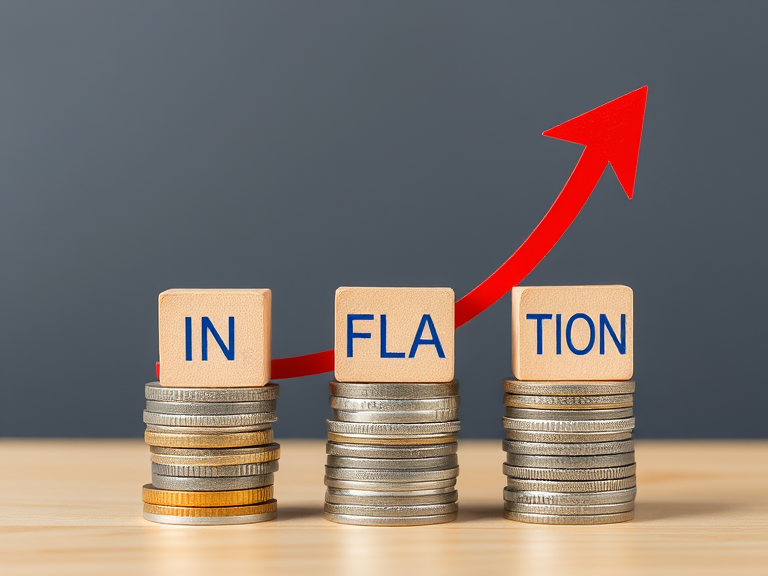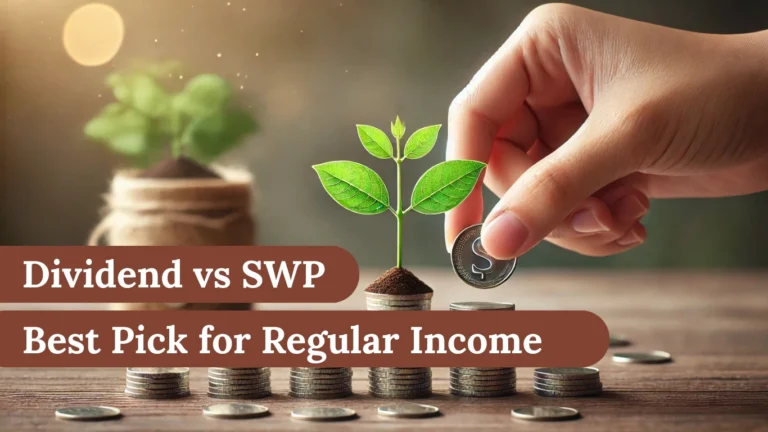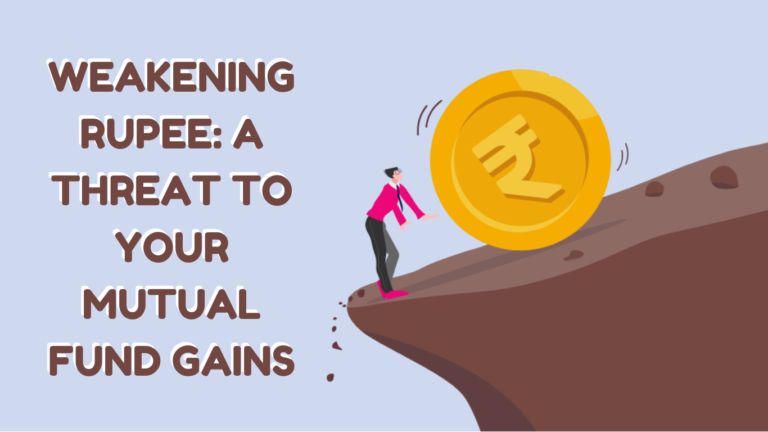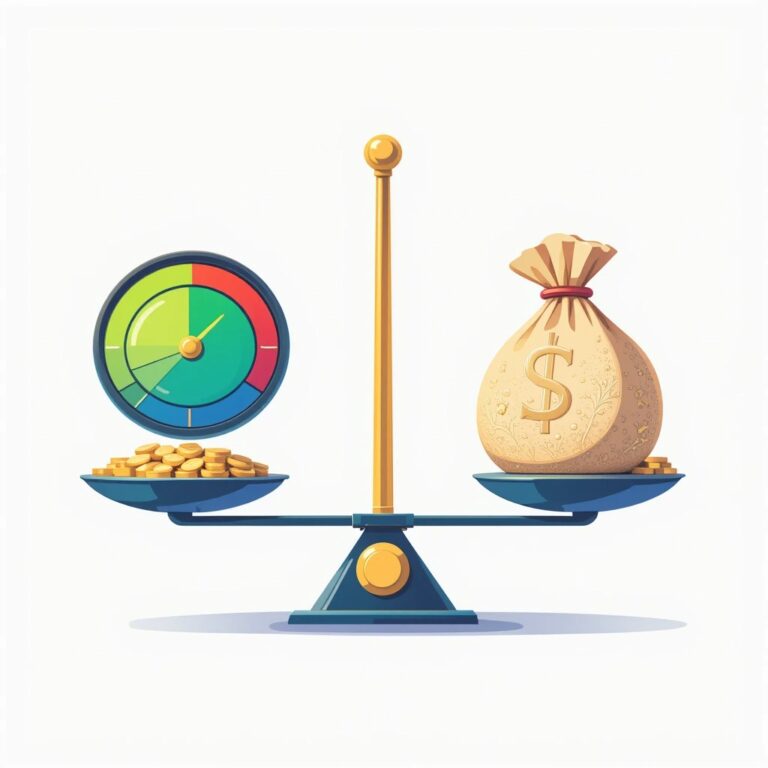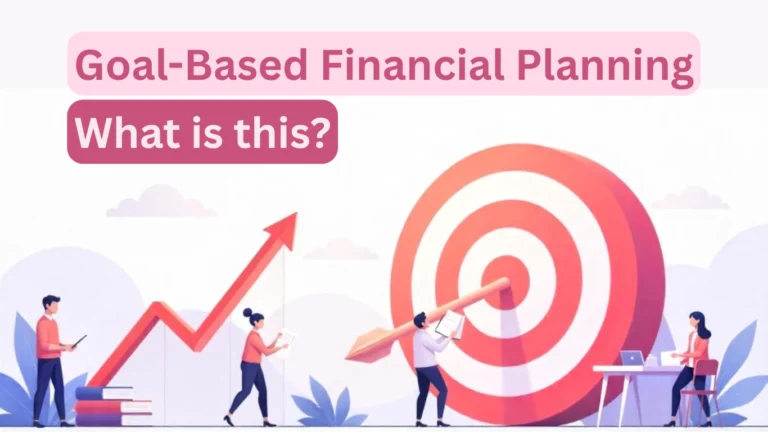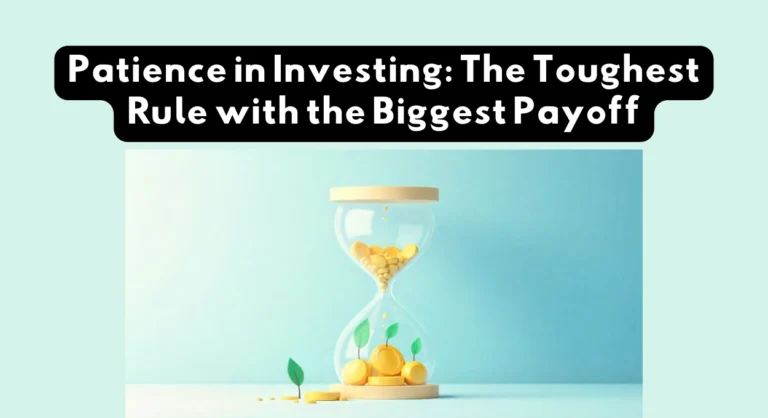HOW INFLATION IMPACTS YOUR FINANCES & HOW TO PROTECT IT
HOW INFLATION IMPACTS YOUR FINANCES & HOW TO PROTECT IT
Inflation—it’s a word we hear all the time in the news, but what does it actually mean for your wallet? Simply put, inflation refers to the gradual increase in the prices of goods and services over time. It means that the same ₹100 that used to buy you a full meal a few years ago might only get you a snack today.
If you’ve noticed that your monthly grocery bill has been creeping up, or that your savings don’t seem to stretch as far as they used to, you’ve already felt the effects of inflation. But don’t worry! In this article, we’ll break down exactly how inflation impacts your personal finances and explore practical ways to stay ahead of it.
Key Impacts of Inflation on Personal Finances
Decreased Purchasing Power: Your Money Buys Less
One of the most immediate and noticeable effects of inflation is a decline in purchasing power. In simple terms, as inflation rises, the same amount of money buys fewer goods and services.
Example: Let’s say you used to buy a loaf of bread for ₹30 a couple of years ago. Due to inflation, that same loaf now costs ₹50. If your income hasn’t increased proportionately, you might find it harder to maintain your standard of living.
This effect can make every day budgeting a challenge, especially when salaries or wages don’t keep pace with rising costs. Suddenly, your monthly grocery, fuel, and utility bills start taking a bigger chunk of your income, leaving less for savings or leisure activities.
How to tackle it:
- Consider reviewing your budget periodically and prioritizing needs over wants.
- Investing in inflation-proof assets like gold, real estate, or stocks that tend to appreciate over time can help protect your purchasing power.
Reduced Value of Savings and Investments
If you’re relying solely on traditional savings accounts, inflation might be quietly eating away at your money. Savings parked in bank accounts often earn interest rates lower than the inflation rate, meaning your money is actually losing value over time.
Example: Suppose your savings account offers a 4% annual interest rate, but inflation is at 6%. In real terms, you’re actually losing 2% of your purchasing power every year.
Long-term savings such as retirement funds, if not invested wisely, can also fall short of covering future expenses.
How to tackle it:
- Look for investment options that have historically beaten inflation, such as equity mutual funds, stocks, and real estate.
Inflation and Debt: A Mixed Bag
Inflation affects debt differently depending on the type of loan you have. If you have a fixed-rate loan, inflation can actually work in your favour because the money you owe loses value over time. On the other hand, if you have a variable-rate loan, rising inflation can lead to increased interest rates, making it more expensive to repay your debt.
Example: If you took a home loan with a fixed interest rate of 8% a few years ago, inflation might have reduced the real cost of that loan. However, if you have a credit card with a variable interest rate, you could see your repayments rise over time.
How to tackle it:
- If you have existing loans, consider refinancing to lock in lower interest rates if possible.
- Pay off high-interest debt first to avoid being burdened by increasing rates.
Higher Cost of Living: A Growing Burden
With inflation, the cost of everything—rent, food, healthcare, and education—gradually increases, which can put significant pressure on household budgets. In many cases, wages don’t rise fast enough to keep up, leading to a reduced quality of life.
Example: You might have budgeted ₹15,000 for monthly groceries and utilities five years ago, but today you may need ₹25,000 or more to maintain the same lifestyle.
Also Read :- https://ipofront.in/health-insurance-a-cornerstone-of-your-financial-plan/
How to tackle it:
- Plan for rising costs by regularly reviewing and adjusting your budget.
- Adopt cost-cutting strategies like meal planning, energy-saving techniques, and avoiding unnecessary expenses.
Retirement Planning Challenges
Inflation poses a major threat to retirement planning. If your retirement savings aren’t growing at a rate that outpaces inflation, you may end up with insufficient funds to maintain your lifestyle after retirement.
Example: Let’s say you plan to retire with a corpus of ₹1 crore in 20 years. If inflation averages 6% per year, you’d need nearly ₹3.2 crore to maintain the same standard of living.
How to tackle it:
- Start investing early and opt for inflation-adjusted retirement plans.
- Consider retirement options like annuities that provide regular pay outs.
Also Read :- https://ipofront.in/the-abcs-of-asset-allocation/
Strategies to Protect Your Finances from Inflation
While inflation is inevitable, there are practical ways to shield your finances from its impact. By taking proactive steps, you can ensure that rising prices don’t erode your purchasing power and financial security. Here are some smart strategies to help you stay ahead of inflation:
1. Invest Wisely
Putting your money into investment vehicles that can outpace inflation is crucial. Historically, equities, mutual funds, and real estate have provided better long-term returns than traditional savings accounts.
2. Diversify Your Savings
Relying on a single savings option might not be enough. Consider spreading your money across different asset classes to mitigate risks.
3. Regular Budgeting
Adjusting your budget periodically helps you keep track of rising expenses and ensure you are spending wisely. Focus on essential expenses and find ways to cut back on discretionary spending.
4. Stay Informed
Keeping yourself updated on inflation trends and economic news can help you make better financial decisions.
Also Read :- https://ipofront.in/how-to-pick-the-right-mutual-fund/
Final Thoughts: Staying Ahead of Inflation
Inflation is a silent thief that slowly erodes your money’s value, but with the right strategies, you can stay ahead of it. Whether it’s through smart investments, debt management, or careful budgeting, being proactive is the key to financial stability.
Instead of worrying about inflation, take charge of your financial future today. Start by reviewing your current savings and investment plans and consider making adjustments that help you stay ahead of rising costs.
Remember, knowledge is power—stay informed, stay prepared, and make inflation work for you, not against you!
Useful Links :-
https://www.hdfclife.com/savings-plans/impact-of-inflation-on-savings
https://www.5paisa.com/blog/personal-finance/impact-of-inflation-on-personal-finances
Frequently Asked Questions (FAQs)
1. How does inflation impact my savings account?
Inflation erodes the real value of money in your savings account because the interest earned is often lower than the inflation rate. This means that even though your savings might grow nominally, their purchasing power decreases over time.
2. Can inflation affect my salary?
Yes, inflation can impact your salary. If your salary increases don’t keep pace with inflation, your purchasing power will decline. It’s important to negotiate periodic salary revisions or explore additional income sources to counter inflation’s effects.
3. Should I change my investment strategy during high inflation periods?
During high inflation periods, it’s wise to shift focus towards assets that tend to perform well in inflationary environments, such as equities, commodities (like gold), and real estate. Diversifying your investments can also help mitigate risk.
4. What role does inflation play in loan interest rates?
Inflation influences interest rates set by central banks. When inflation rises, interest rates typically increase, making new loans more expensive. However, those with existing fixed-rate loans benefit as their repayment amounts remain unchanged.
5 .How does inflation impact the cost of big-ticket items like homes and cars?
Inflation drives up the prices of big-ticket items such as homes and cars, making them more expensive over time. This is why it’s often recommended to make such purchases earlier rather than later to avoid higher costs in the future

